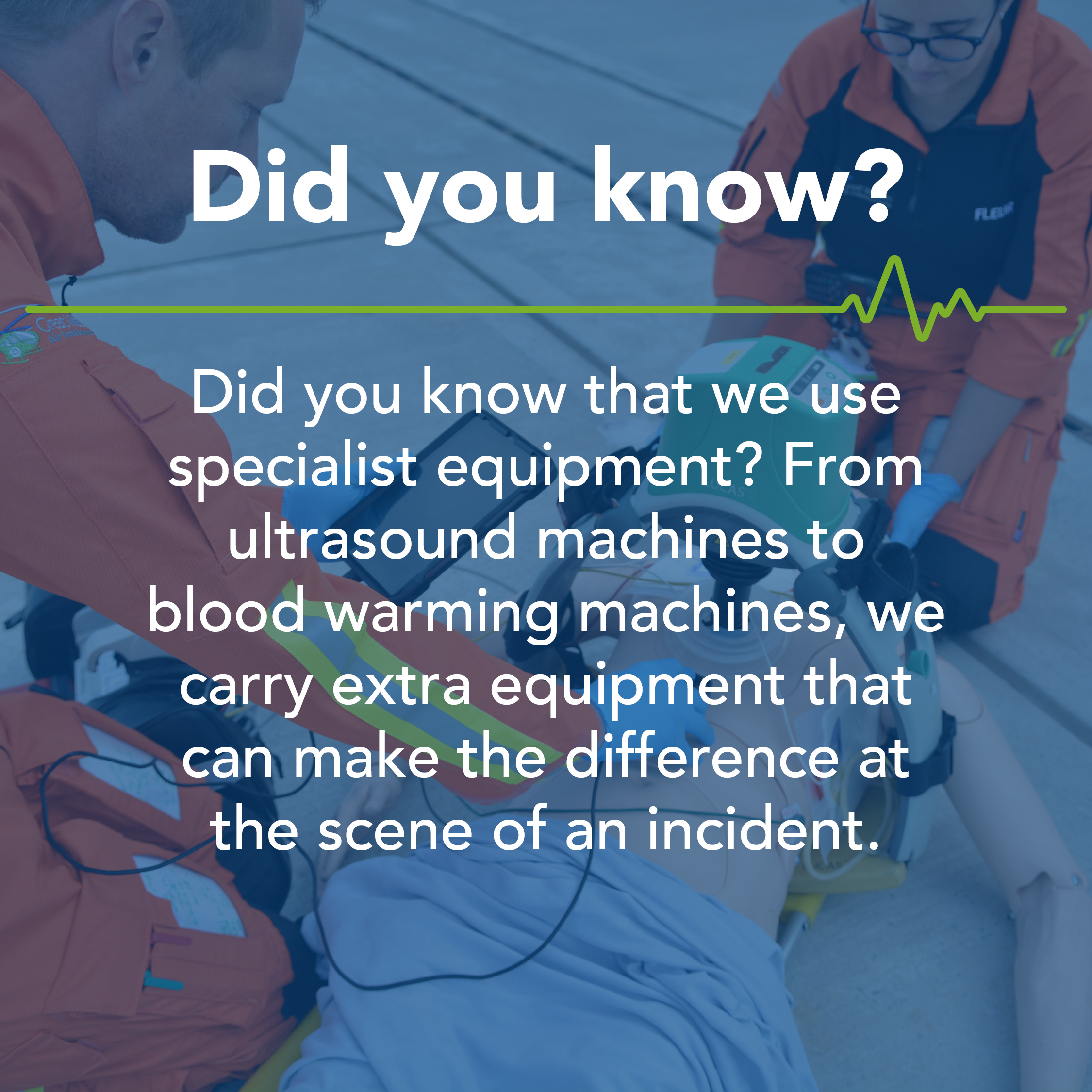
Will Hicks to brave the London Marathon in a helicopter costume for GWAAC
April 19, 2023
Multi-agency training day prepares crews for real-life emergencies
May 31, 2023We can administer lifesaving blood transfusions


We carry specialist equipment usually found in a hospital
We have access to advanced drugs
This means we can provide things such as advanced pain relief and even anaesthetise the patient before they are taken to hospital.


Our paramedics help the pilot get to, and land as close to the patient as possible
Every one of our paramedics is a qualified Helicopter Emergency Medical Services (HEMS) Technical Crew Member.
Once qualified as a HEMS Technical Crew Member, the paramedic can take dispatch calls and initiate a response. This involves plotting the route to the job, programming the GPS system on board the aircraft to assist the pilot in navigating, and identifying suitable and safe landing sites as close to the scene as possible.
Because we are an air ambulance, we have certain exemptions from aviation law to allow our crew to get to a patient as quickly and efficiently as possible, such as landing in unsurveyed sites, and having priority over other air traffic. However, to be able to qualify for these exemptions, there must be a HEMS Technical Crew Member on board, sitting in the cockpit alongside the pilot.
Click the button below to take a virtual tour of Helimed 65.
We make decisions to bypass the closest hospital in favour of the most suitable one
Thanks to the UK’s Major Trauma Network, we can take our patients to specialist hospitals that are best prepared for the types of incidents we often attend.
In 2022, 88% of patients we took to hospital were taken to either a Major Trauma Centre (MTC) or a cardiac specialist hospital.
Click the button below to find out more about MTCs, the UK’s Major Trauma Network and how they help us provide better care for our patients.


Within our crew, individuals have different specialisms
Our Critical Care Doctors also work in hospitals across the UK. They bring a collection of specialist skills and knowledge to our team. We have doctors that specialise in neurology, neonatology, emergency medicine, cardiology, intensive care and more!
Similarly, our paramedics come from different backgrounds and have different skills that they bring to the team. Some have previously worked in hazardous area response teams (HART) and others still work with children in neonatology.
Why not read one of the blog posts below that delve deeper into members of our crew and each of their specialities.



